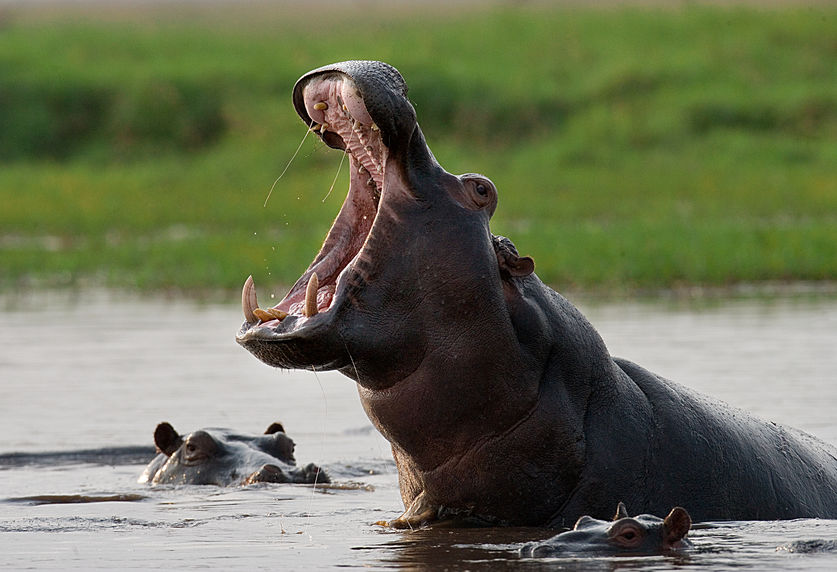“Say hello to my little…hippo?”
The infamous drug lord Pablo Escobar brought violence, crime, and terror to Colombia and much of the region during his reign.
But Escobar also brought in exotic pets for his estate, that have now escaped and are roaming the Colombian countryside.
Of particular interest are the hippopotamuses that now roam free, which have grown from the original four Escobar kept in an impressive herd of 80 animals. While some consider them to be a nuisance, others say they are actually filling a needed role in Colombia’s environment and ecosystem.
This is because the hippos eat the same food, weigh about the same, and act generally similar to the now extinct Hemiauchenia paradoxa, which was not unlike today’s llama.
The llama-like creature roamed the region of Colombia about 100,000 years ago and was much bigger than its contemporary brothers.
Now, with hippos on the scene, there is another large herbivore trampling vegetation into grasslands, eating excess vegetation, and excreting similar compounds to help fertilize the area.
Popular Science reports:
But could the species that we consider ‘invasive,’ like Escobar’s hippo tribe, be filling the glaring gap they left behind?
A new study published Monday in PNAS that compares qualities of ancient fauna with their newly introduced counterparts argues that creatures that have ended up far from their evolutionary homes, like camels in Australia or feral horses in the Americas, are stepping in the ecological shoes of animals long extinct.
“While they might look really different, in terms of how they influence ecosystems, they are actually not that different,” says study author John Rowan, a paleontologist at the University of Massachusetts Amherst. A hippo and an ancient llama might sound pretty distinct from one another, but they eat equivalent food, weigh about the same, and digest their meals similarly.
In fact, this example may prove to be an instructive moment to scientists and conservationists – as from now on they may take a second look at attempting to remove a species that isn’t necessarily residing today in the same precise location from which it originally came.
To read the Popular Science article, click here.
